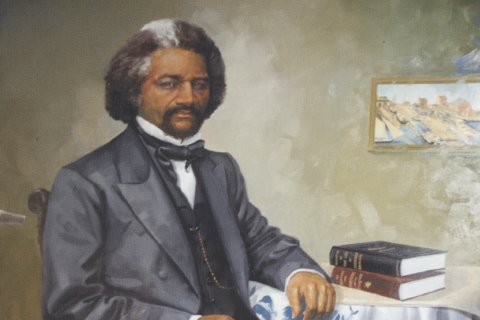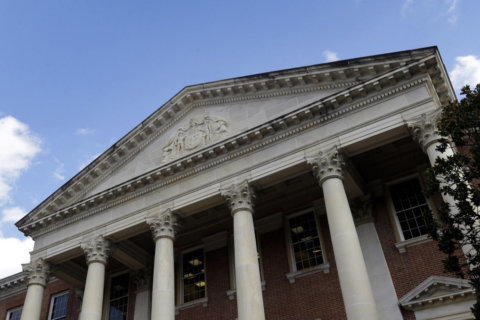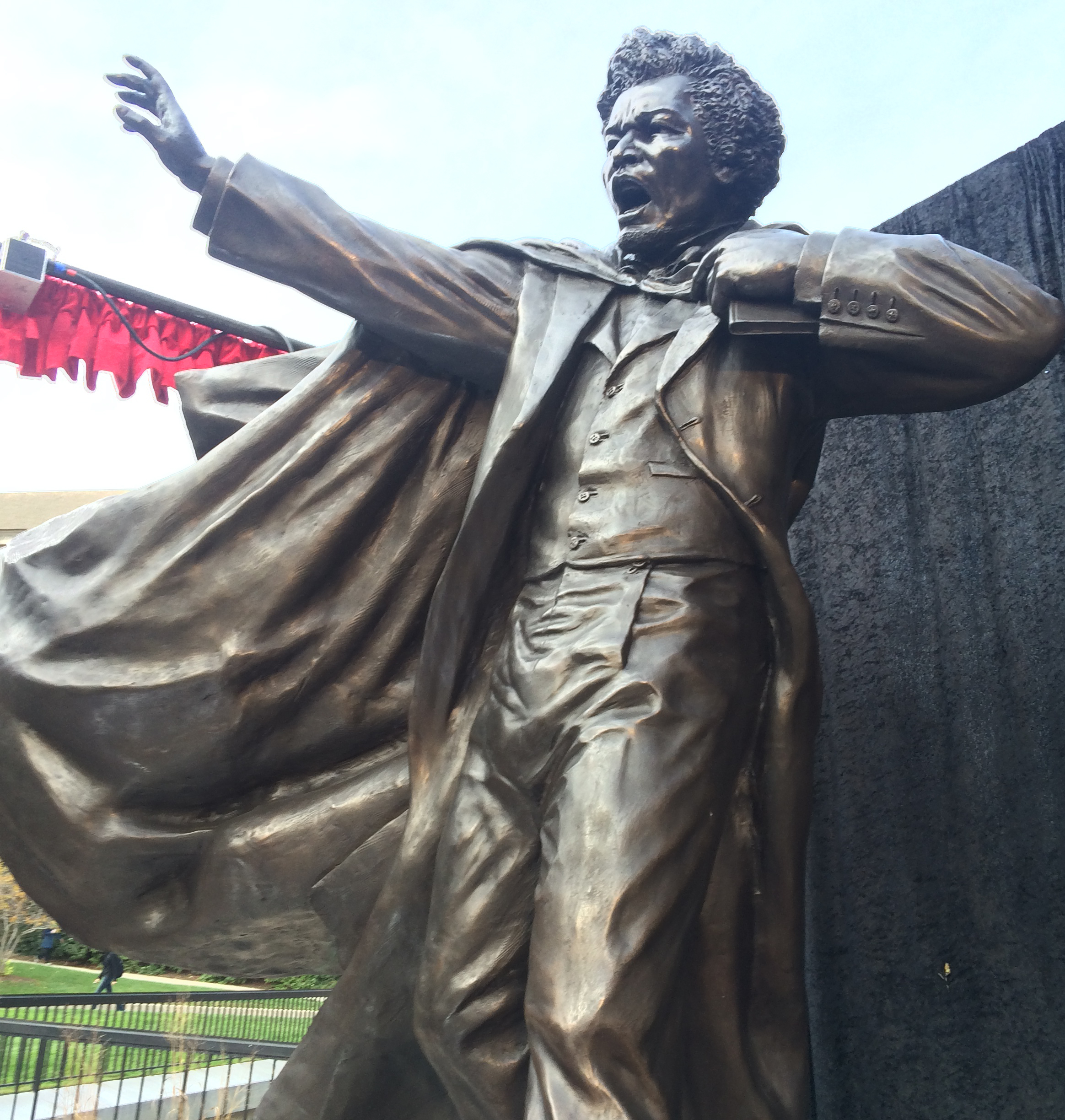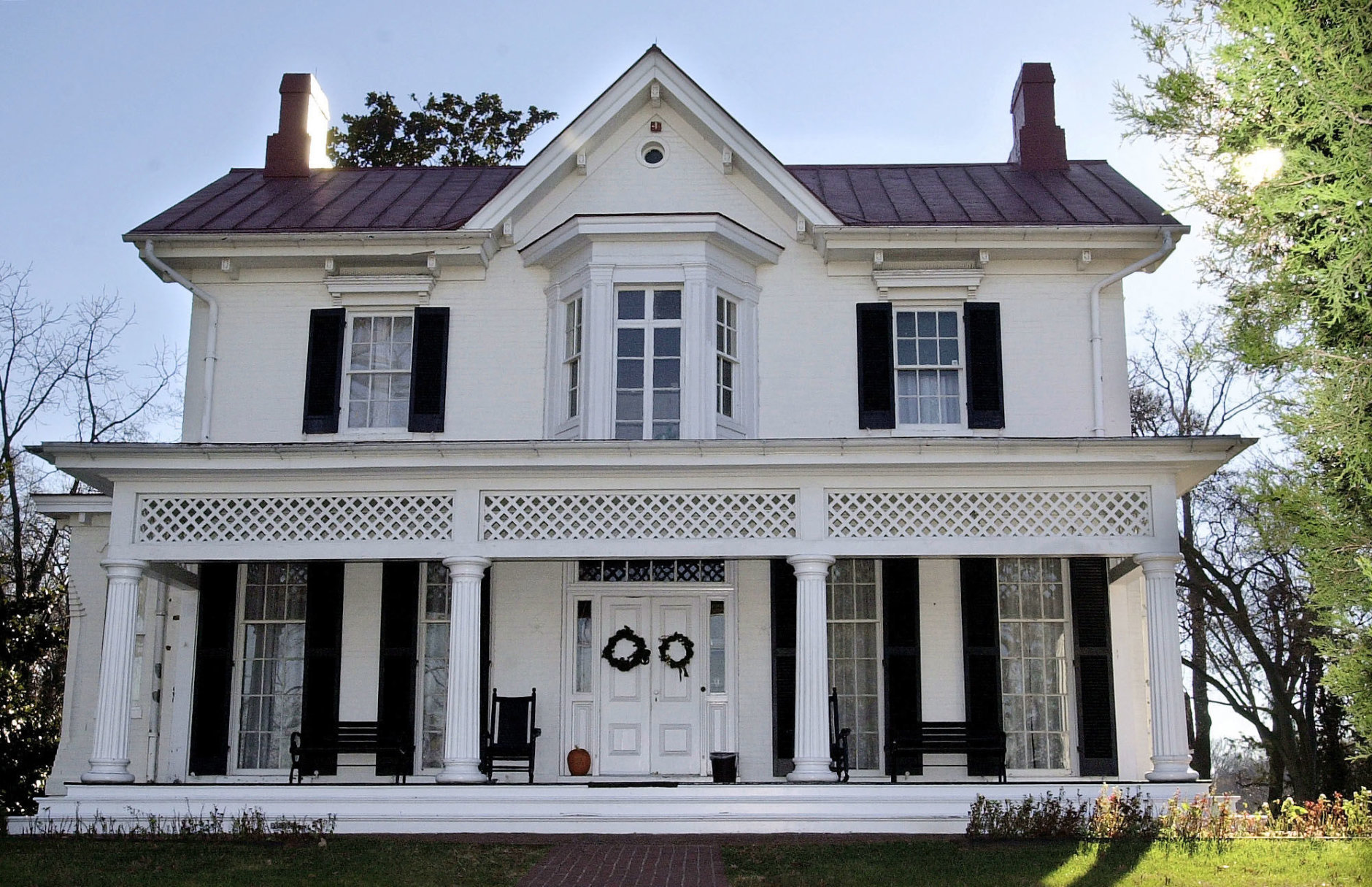
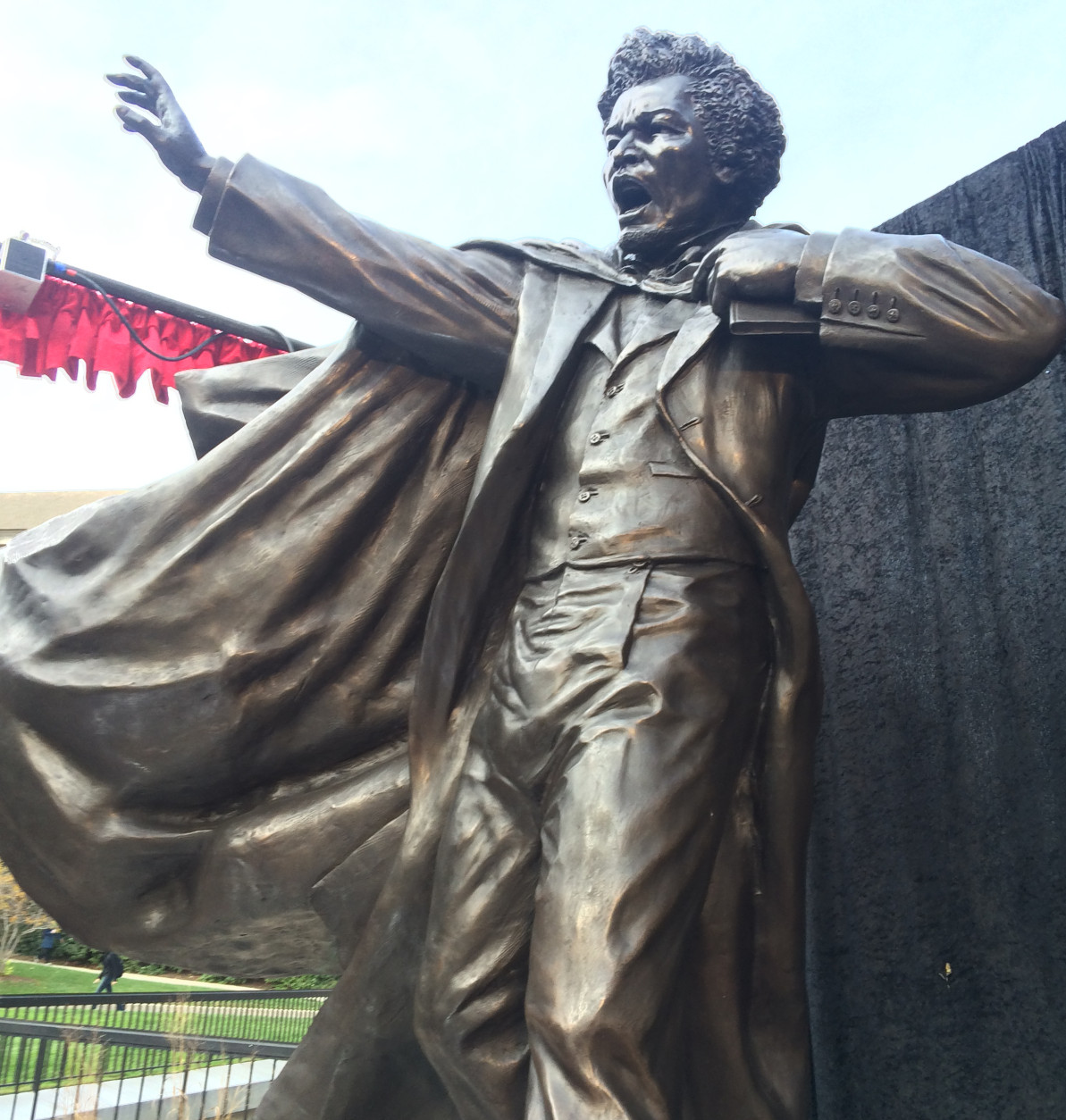
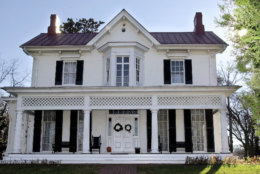
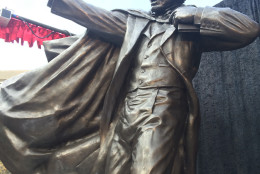
More than 100 years after Frederick Douglass delivered a speech criticizing America’s selective liberty, his words will once again be heard — this time from the porch of his Anacostia home.
Douglass delivered his address in Rochester, New York after he was invited to speak on Independence Day in 1852. His speech is best known for a question he posed to the audience: “What to the American Slave is the Fourth of July?”
In his speech, Douglass acknowledged the legacy of the Founding Fathers, but pointed to the hypocrisy of a holiday that celebrates freedom and independence while practicing slavery.
His criticism was unsparing. One passage of the speech includes the following:
“The rich inheritance of justice, liberty, prosperity and independence, bequeathed by your fathers, is shared by you, not me. The sunlight that brought light and healing to you, has brought stripes and death to me.”
Phil Darius Wallace, the actor who will portray the famed orator and abolitionist at the Frederick Douglass National Historic Site on July 4, offered his thoughts on the speech’s enduring wisdom.
“What’s amazing is that it’s relevant today,” Wallace said. “There’s still injustice; there’s still racism. So that when you hear the Fourth of July speech, it resonates.”
Wallace didn’t become familiar with the Douglass’ speech or its message until 2006, despite growing up in a household with his father’s books on Douglass sitting on the shelf.
“As a young person, in the ’70s when I was in elementary school, I only remember there was a paragraph about Frederick Douglass in textbooks.
The actor — who has now done a one-man show spotlighting Douglass’ life — said he is not the only one to discover the speech as an adult.
Wallace said being able to deliver the address from Douglass’ home in Cedar Hill, with a sweeping view of the nation’s capital, is special.
Standing on the house’s porch, Wallace points, “To the right, as I’m standing on the porch, is Tuckahoe, Maryland,” the place where Douglass was born into slavery. “And to my left, I can see the Capitol.”
That view reminds Wallace of Douglass’ words:
“The simple fact of the matter is, ladies and gentlemen, the distance between the platform and the slave plantation, from which I escaped, is considerable. And the difficulties in getting from the latter to the former are by no means slight. That I am here today to me is a matter of astonishment, as well as of gratitude.”
Wallace said he would like people to reflect as they listen to the speech.
“That we all recognize, that if there’s any place for injustice for anyone, that there’s a possibility for injustice for everyone. So that’s what I’d like people to think about,” he said.
To watch Wallace’s performance of Frederick Douglass’ speech, visit the National Park Service for more information.


